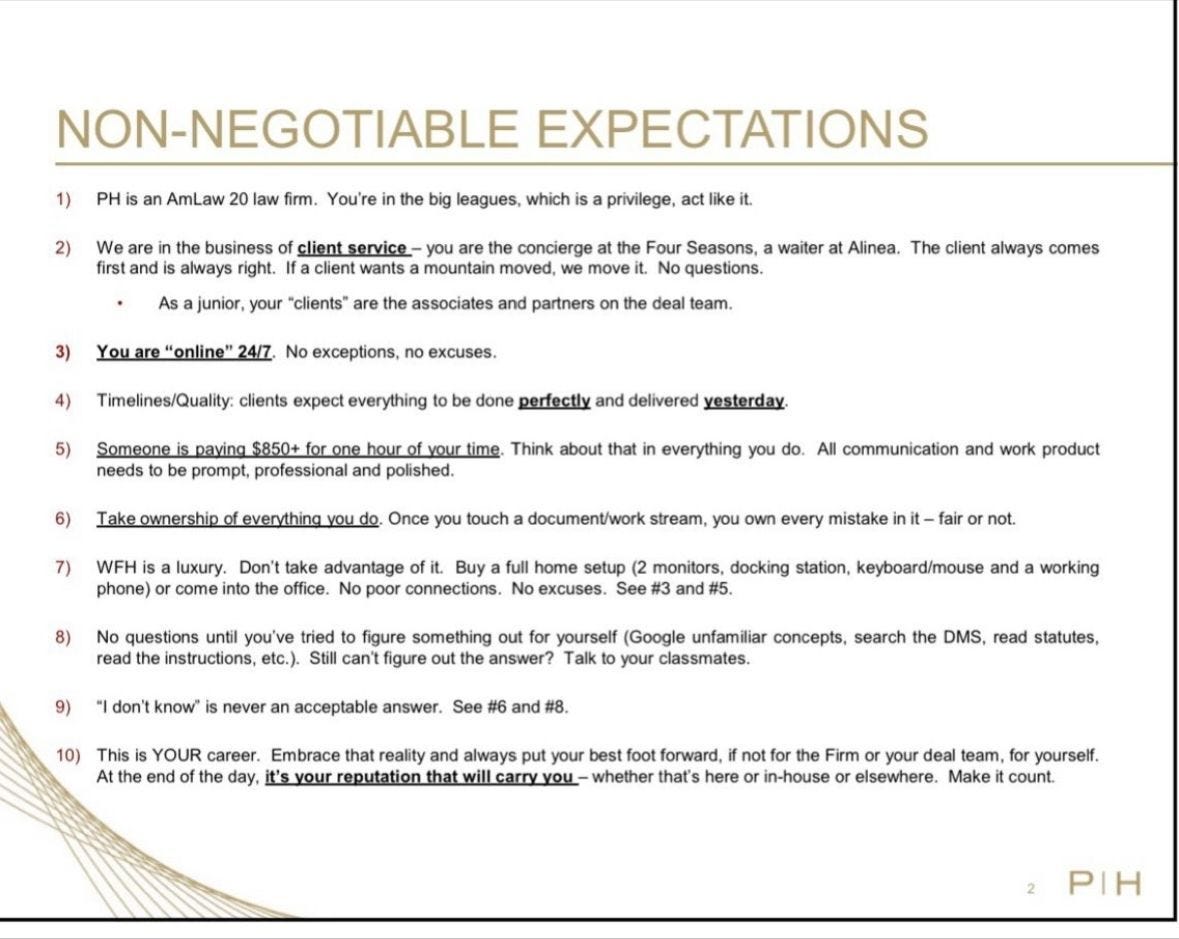When you're in the business of selling hours
Paul Hastings and Kirkland & Ellis show us how the law firm world really works
As many of you know, I’m fascinated by the unspoken rules of the legal profession. It’s often hard to figure out what those are though. So whenever something unexpected takes place, I believe it’s a great opportunity to see how things *really* work. This week, the big news was an over-the-top career advice slide from Paul Hastings, and to a lesser extent, the simultaneous announcement of layoffs & massive profitability by Kirkland & Ellis. I will discuss what it all means for those of you who are still trying to move up in the law firm world.
Unless you’ve been living under a rock you have probably seen the Paul Hastings “non-negotiables” slide that made the rounds on social this week.1 The slide (which I’ve screenshotted below) generated huge amounts of media coverage and discussion about the legal profession.
I won’t rehash much of what’s been already said. Yes, the tone is terrible. And yes there are some laudable ideals for all lawyers, like taking ownership of your work. But from my point of view, the most fascinating point about all this is that nothing in the slide is there to make you a better lawyer. Instead, it’s all about how to become a better servant to senior lawyers, and how you can help them justify billing you out to clients at $850 an hour.



